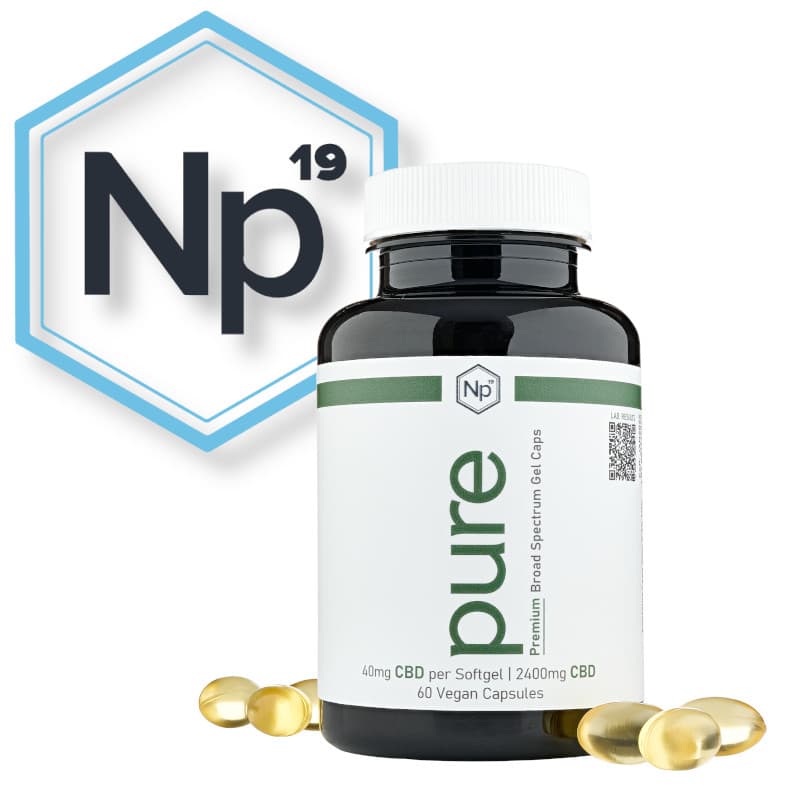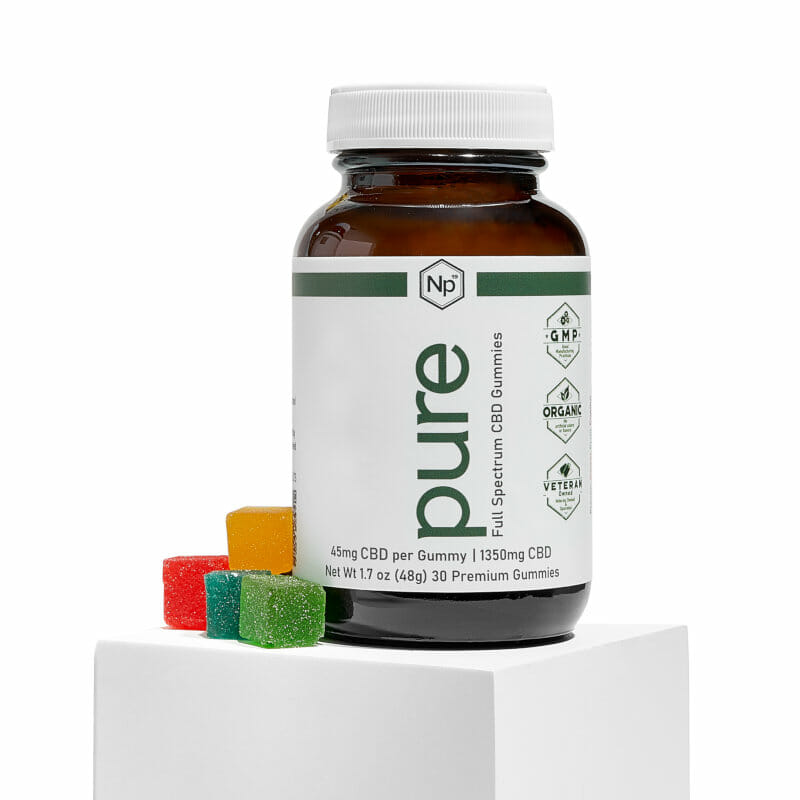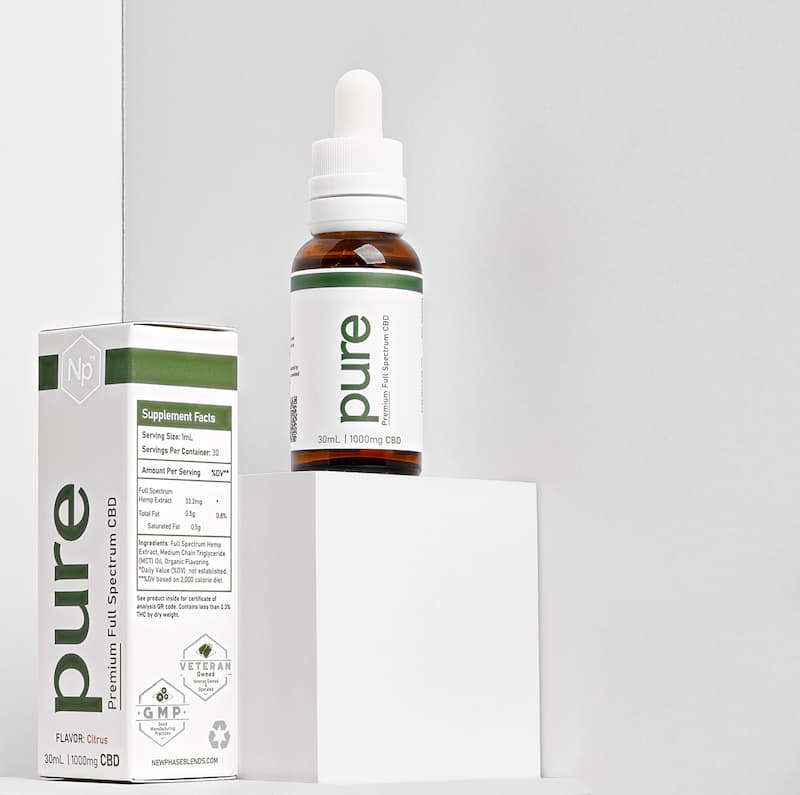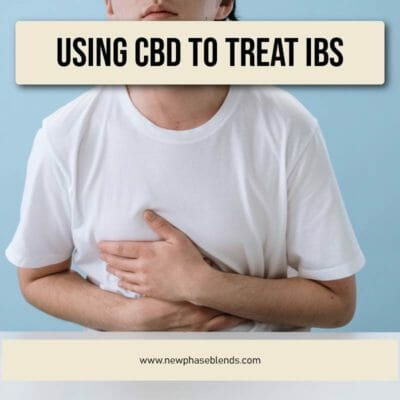If you’re like one in five Americans, you suffer from Irritable Bowel Syndrome (IBS). This debilitating condition can cause cramping, gas, bloating, diarrhea, and constipation. Living with IBS can be incredibly frustrating and embarrassing. While there is no cure for IBS, treatments can help lessen the symptoms. Cannabidiol (CBD) is a natural compound found in the cannabis plant that has been shown to help relieve IBS symptoms. CBD can be an effective treatment for IBS, and in this comprehensive guide, we will explore how it works and how you can use it to get relief from your painful symptoms.
Cannabidiol (CBD) and Irritable Bowel Syndrome
Irritable Bowel Syndrome (IBS) is a disorder that affects the bowels. It causes stomach pain, bloating, constipation, and diarrhea. IBS is a pervasive disorder affecting 1 in 7 people in the United States. There is no one cause of IBS, but it is thought to be caused by a combination of factors, including genetics, diet, and stress.

Though often confused with inflammatory bowel disease (IBD), IBS is different. IBD is a severe, lifelong disease that can lead to complications, such as ulcers and cancer. On the other hand, IBS is not a life-threatening disorder and does not cause inflammation or damage to the bowel.
IBS is a common disorder among Americans, with an estimated prevalence of 14.75%. This means that approximately 15% of the population experiences symptoms of IBS. Nearly 45 million people in the U.S. alone suffer from IBS to some extent. Genetics, stress levels, and even one’s diet can contribute to IBS development. Other potential causes include an overactive (or hypersensitive) digestive system or colon and even clinical endocannabinoid deficiency. Pre-existing conditions may also lead to IBS and its symptoms. For example, bacterial infections in the gastrointestinal tract can sensitize the colon – thus leading to IBS.
CBD can be used to help offer relief from some of the symptoms that IBS brings along with it, but CBD will not cure you outright. Think of CBD as a supplement you can use to help deal with IBS, and manage your day to day activities better.
Symptoms CBD May Help With
The symptoms of IBS vary from person to person. They can include stomach pains, bloating, constipation, and diarrhea for the most part. The pain that many people experience is what most people using CBD for IBS report getting the most benefit from.
It’s essential to watch out for IBS symptoms, indicating other underlying concerns. For example, severe abdominal pain may signify appendicitis or another serious condition.
How Can CBD Help With IBS?
Cannabidiol (CBD) is a chemical compound found in Cannabis sativa, Cannabis indica, and hemp plants. It is one of over 100 aromatic compounds found in cannabis, and it is the second most abundant compound in marijuana after THC. Unlike the more popular THC, CBD is non-psychoactive, meaning it does not produce a “high” or alters your state of mind.

CBD has multiple potential health benefits, including reducing gastrointestinal inflammation, relieving pain, and improving sleep. Some research has also suggested that CBD may effectively treat anxiety and depression.
Like we mentioned earlier, CBD really shines in the arena of pain management. This is why most people decide to use it to help manage the pain in the gut that IBS brings with it.
CBD Stimulates the Endocannabinoid System
Understanding how CBD may help with IBS requires a basic knowledge of the endocannabinoid system (ECS). Can this concept explain the therapeutic benefits that CBD offers? Yes, and here’s how and why.
The ECS is a system of receptors and compounds found throughout the brain, nervous system, and immune system. As a major player in various physiological processes, the ECS has roles in pain perception, inflammation, and gut motility. The two main types of cannabinoid receptors are CB-1 and CB-2. CBD is thought to interact with these cannabinoid receptors, thus helping to reduce inflammation and pain.
The endocannabinoid system has been shown to play a role in gut motility and inflammation — both of which are believed to contribute to the symptoms of IBS. by interacting with the endocannabinoid system. CBD helps increase the contractions of gut muscles, which can help to relieve constipation. In one study, CBD increased the frequency of bowel movements in rats.
Try CBD Gummies For Pain Relief From IBS
Try consuming CBD gummies for discomfort and pain that you might be experiencing from IBS. By interacting with receptors found in the ECS, CBD alleviates many of the symptoms associated with IBS. This effect can significantly alleviate the overall quality of life for those constantly plagued by IBS woes.
CBD and Gut Inflammation
Aside from regulating gut motility, the ECS plays a significant role in the body’s immune response. In people with IBS, the immune system is thought to be overactive. CBD may help to regulate the immune system and reduce inflammation.
This is because it interacts with the CB-one and CB-two receptors, which have anti-inflammatory effects. In one study, CBD reduced inflammation in rats with colitis.
CBD is a promising treatment for IBS, but more research is needed.
Although CBD shows promise as a treatment for IBS, more research is needed to confirm its efficacy. Currently, there are no large-scale clinical trials on CBD for IBS. However, several small studies have been conducted that suggest it may be effective.
One study looked at the effect of CBD on IBS symptoms in rats. The rats were given CBD or a placebo for 28 days. The rats that received CBD had reduced inflammation and pain and improved gut motility.
A second study investigated the use of CBD oil in humans. The study included 30 participants with IBS. The participants were given either CBD oil or a placebo for four weeks. The study found that the participants who took CBD oil for IBS had significantly reduced pain, bloating, and diarrhea. They also had improved quality of sleep and increased appetite.
There is still much to learn about how CBD may help with IBS. However, the current data is promising and suggestive that this cannabinoid does indeed help in more than one way.
Additional Benefits of Supplementing with CBD
Aside from its gut-regulating and anti-inflammatory effects, CBD has added benefits — from anti-anxiety effects to stress relief. By taking advantage of these benefits, IBS patients can improve their quality of life.

- Help relieve anxiety and stress. Those with IBS may find themselves in a constant state of distress due to the fear of having an IBS attack. For people with IBS, anxiety and depression are common comorbidities. Studies have shown that CBD may help relieve anxiety and stress.
- Alleviates chronic pain and fatigue. IBS sufferers may also develop tension myositis syndrome – also known as “fibromyalgia of the gut” – characterized by widespread pain and fatigue. In one study, CBD reduced pain and fatigue in rats with arthritis.
- Improves sleep quality. Poor sleep is a common symptom of IBS and can exacerbate other symptoms like pain and fatigue. By promoting better sleep, CBD may help improve the overall quality of life for those with IBS.
- Boosts libido. Another potential side effect of CBD is an increase in libido. Although this has not been studied extensively, some people have anecdotally reported that it helps boost their sex drive.
- May increase appetite. Another common symptom of IBS has decreased appetite, especially when the symptoms flare-up. CBD increases appetite in some people, a welcome side effect for those struggling with weight loss.
How to take CBD for IBS symptoms
There are a few ways to take CBD for IBS symptoms. The most common way to take CBD is via tinctures or oils. You can either take the CBD oil orally by drops or mix it with your food. When taken orally, the CBD is absorbed into the bloodstream and goes to work quickly.
Another way to take CBD tinctures or oils is via the sublingual route. This means that you hold the drops of CBD oil under your tongue for a few minutes before swallowing. This allows the CBD to be absorbed through the mucous membranes in your mouth.
CBD Capsules
CBD capsules (or tablets) are a good choice for people who don’t want to taste the hemp oil or those who need a higher dose of CBD. The capsules are digested like any other pill, and the CBD is released slowly over time. Unlike other delivery methods, capsules offer controlled (but rarely customizable doses).

CBD Gummies
CBD gummies and other edibles can also be helpful. However, as they are food items, they take longer to digest and may not be the best choice for diarrhea patients. Infused edibles may also come with ingredients or additives that may end up upsetting your already fragile digestive tract.

Pure CBD Oil
A product like a pure CBD oil is great for IBS, because it doesn’t require your body to digest much of anything. While gummies and capsules are extremely mild on the digestive system, the oil is even more mild. You place some drops under your tongue, and hold there for about 1 minute. Swallow whatever is left over, and wait for the results to kick in.
Which of the Different Ways to Take CBD is Best?
There is no one-size-fits-all answer to which of the different ways to take CBD is best. Some people prefer to take CBD oil orally, while others find that the sublingual route works better. Capsules may be a good choice for those who want a slow and steady release of CBD, while gummies and other edibles may be better for those who want a more immediate effect.
It’s essential to experiment and find what works best for you. Increase your low dose incrementally until you find the amount that relieves your symptoms. If you’re unsure how to start, speak to a doctor or healthcare professional who can offer guidance.
CBD and IBS: Dosage guidelines
There is no “right” dosage for CBD use in treating IBS right off the bat. Patients do not follow a standard dose when using cannabis for medicinal or therapeutic purposes. Instead, they start with a minimal dose and increase it as prescribed.
For example, one study on the effects of CBD on IBS found that a starting dose of 25 mg/day was effective in reducing symptoms. The participants were then able to increase their dosage to 50 mg/day or 100 mg/day as needed.
Luckily, CBD is well-tolerated by most people, even at higher dosages. The cannabinoid is generally non-toxic, meaning there is little risk of overdosing. That being said, it’s always best to stay in the safe lane and not go overboard with this substance.
And finally, be patient. Don’t be in a rush to increase your dose when you don’t notice the immediate effects of CBD. It can take a few weeks or even months to see the full effects of CBD on your IBS symptoms.
Side effects of CBD use for IBS
There are few side effects associated with CBD use. The cannabinoid is generally well tolerated by most people. However, some people may experience mild side effects like drowsiness, dry mouth, or diarrhea. Adverse reactions to CBD are rarely severe and usually resolve on their own.
If these symptoms persist or become bothersome, it’s best to speak to a healthcare professional. They can help you determine whether the side effects are due to CBD or something else. They may suggest a lower dose or an alternative to the cannabinoid because of CBD.
Keep in mind that CBD could interact with prescription medications you might be currently taking for IBS or other pre-existing conditions. As such, it’s always best to speak to a doctor before starting any new medication, even if it’s natural, like CBD.
Should You Take CBD?
If you are struggling with IBS symptoms, it is worth considering CBD. However, it is essential to note that more research is needed to determine the efficacy of CBD for treating IBS. It is also necessary to consult with a healthcare professional before starting any new treatment.
What to watch out for
If you’re interested in trying CBD for treating your IBS, here are a few things to keep in mind:
- First, make sure that you purchase high-quality CBD oil. Premium hemp-derived extracts tend to cost more. However, they are also more potent and effective. Make sure to check the labels for potency (in terms of CBD content) and other important information like purity and contaminants.
- Look for products that are made with organic, all-natural ingredients. Since you’ll be consuming the oil, it’s essential to avoid any chemicals or pesticides present in non-organic products.
- Avoid unnecessary additives. Some CBD oils come with added flavoring or other ingredients that trigger your IBS. Unless you’re specifically looking for these extras, it’s best to stick with a simple product that contains nothing but CBD oil.
- Make sure an independent third party has tested the CBD products. This will ensure that the product is safe and effective.
Summary – Using CBD to Treat IBS Symptoms
CBD oil is a natural remedy that’s proven to be a promising alternative in treating various conditions, including IBS. CBD works by interacting with the endocannabinoid system (ECS) in your body.
The ECS is responsible for maintaining balance in your body, and when it’s out of balance, you can experience various health problems. CBD helps restore balance in the ECS, which can help reduce IBS symptoms.
However, more research is needed to determine the efficacy of CBD for treating IBS. It is also essential to consult with a healthcare professional before starting any new treatment.
If you suffer from IBS, don’t give up hope — CBD oil products may be able to help you get relief from your symptoms. Try it for yourself and see how it works for you. You may be surprised at how well it can work.
Want to know more about this great, gut-saving cannabinoid? Check out our other blog posts about all things CBD. You can also find the answers to common questions about CBD that you might have right here!












